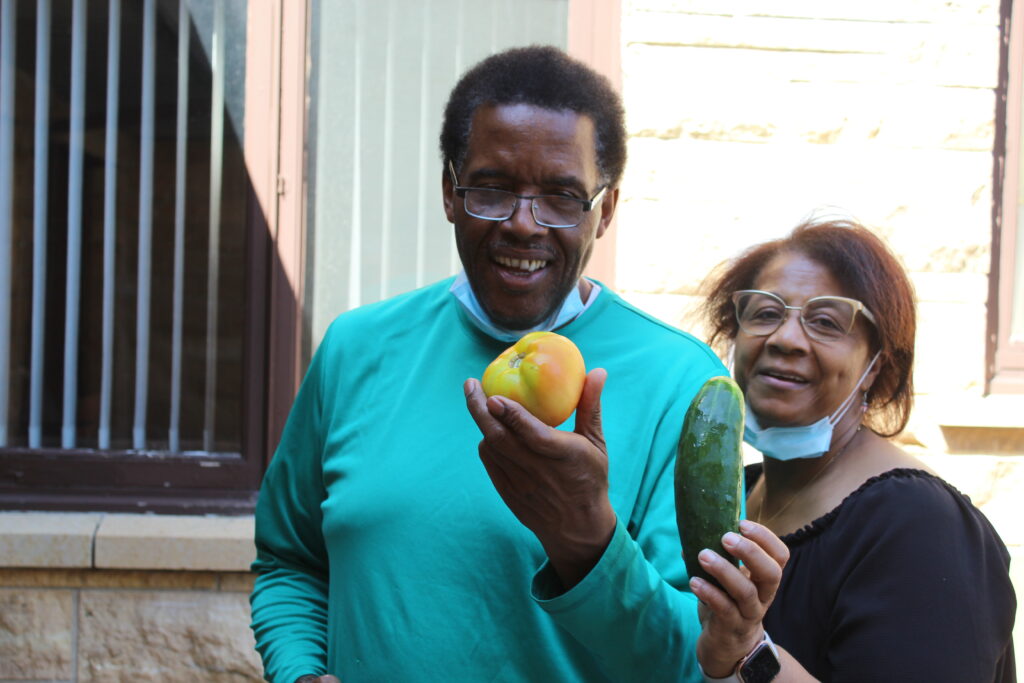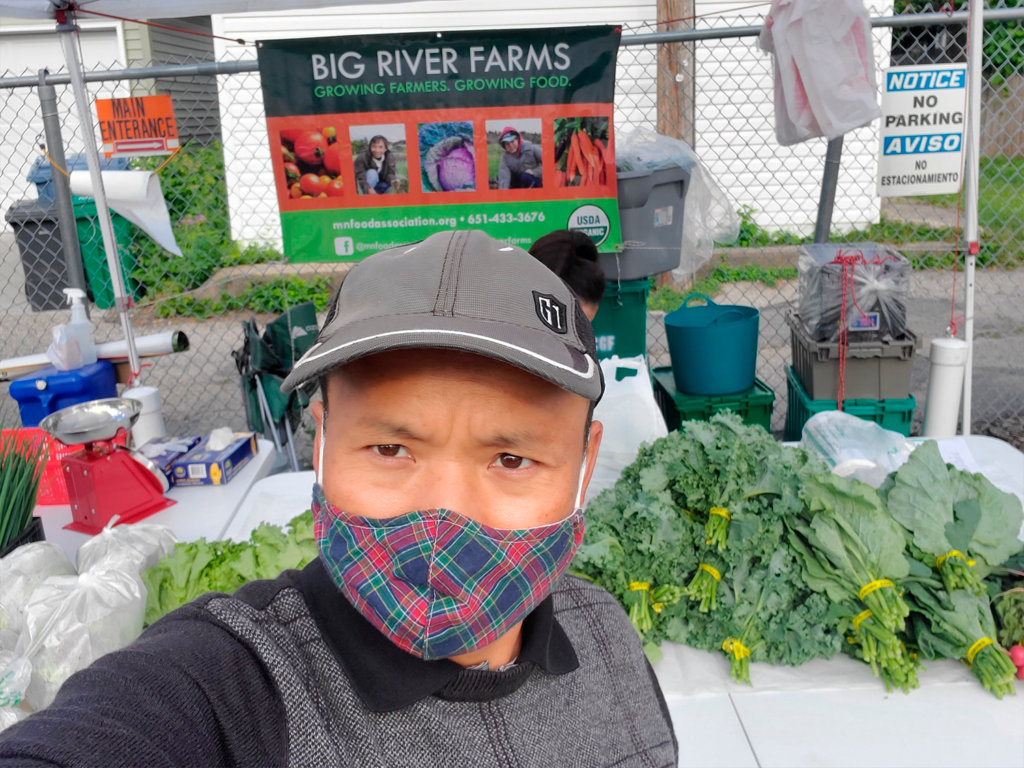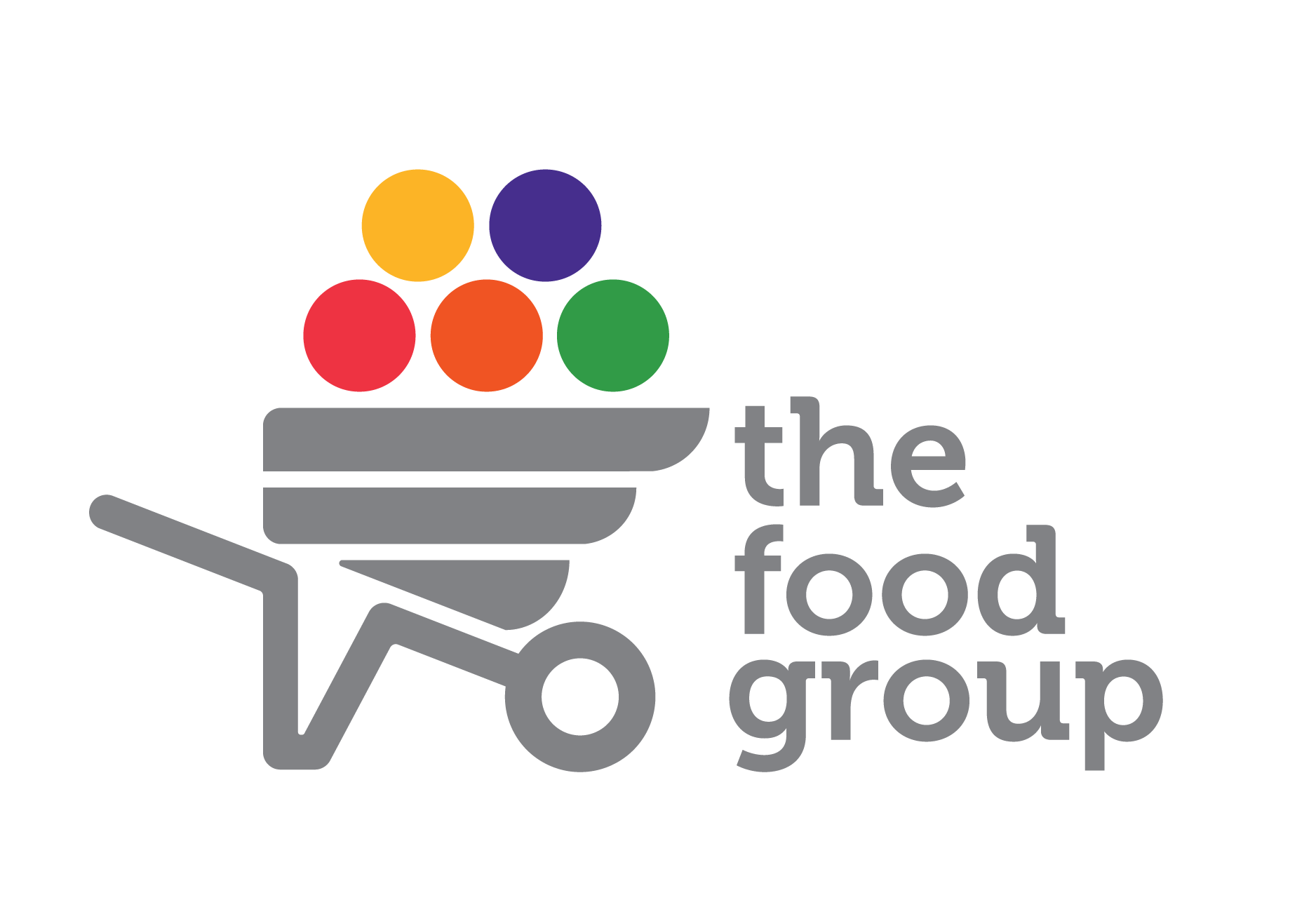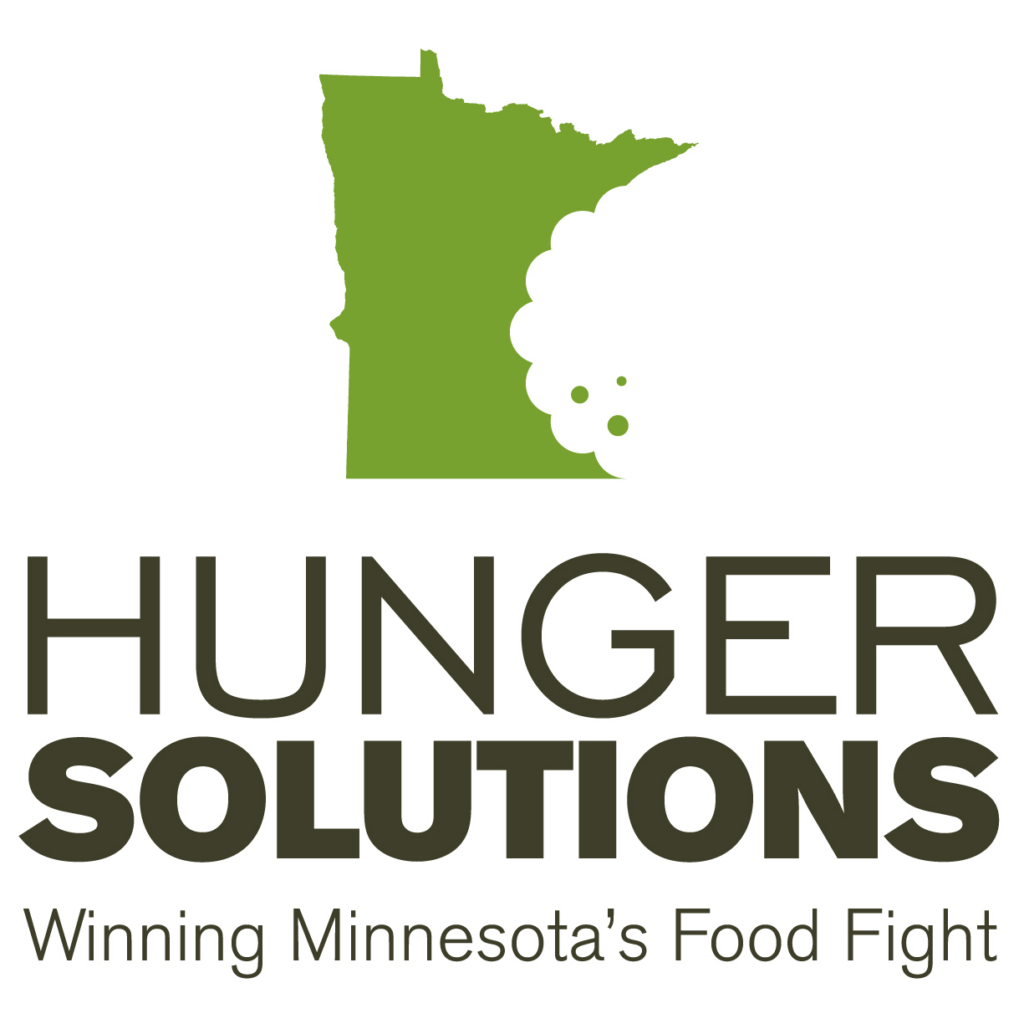
Food shelf and meal program guests are receiving an increased benefit this summer: locally grown, fresh, organic produce from Big River Farms. Thanks to donor support, farmers can sell their produce directly to The Food Group for distribution to local food shelf partners. Contributions are leveraged to provide nutritious, high-quality vegetables and fruits to families who are most affected by the economic downturn.
This year’s farms-to-families produce distributions expand on past collaborations with local farmers, food co-ops, and gleaning partners. Donations have multiplied the volume of produce available during a year when both farmers and food shelf guests appreciate the extra support.
“The pandemic created great uncertainty for the farmers in our program, with many of their usual markets gone or scaled back,” says Laura Mirafuentes, Big River Farms’ Program Manager. “At the same time, there’s a high interest in local food. The additional funding we’ve received from donors during the COVID-19 crisis has double the impact, helping our farmers through purchase of their produce, and providing fresh food to our food shelf and meal program partners.”
New Oil Christian Center in the Camden neighborhood of Minneapolis is a new partner since the COVID-19 emergency onset. Pastor Bruce Carpenter and his wife Brenda are leading the small congregation to prepare and provide 300 meals each week, mostly to homeless adults and families in temporary shelter, and to seniors with medical conditions or mobility challenges. Learning that they could get fresh farm food at no charge through partnership with The Food Group and Big River Farms was “a match made in heaven,” according to Bruce. Volunteers use the church’s commercial-grade kitchen to prepare meals that are delivered to distribution sites on their “Soul Good” food trailer. “We deliver hot, well-balanced meals so our guests can eat healthy food,” he says. “We so appreciate these deliveries from the farm,” Brenda adds. “And our volunteer cooks are trying new foods and finding new recipes like sauteed turnip greens!”

This year also happens to be a good growing year, so there is a bountiful harvest. Farmer Wa Kou Hang is pleased to participate in the initiative. “Organic produce should be affordable and cheaper than conventional produce because we manage soil fertility naturally. Supporting good health is one of our core operating farm business principles. I am happy to be part of organic producers who can participate in Farm to Food Shelf. Our produce will reach low-income families who have limited access to quality organic produce,” he says.
“It’s amazing to have this funding to allow our farmers to get the healthy food to get to lower-income homes and people who most need the food, and still pay the farmers,” Laura says. “I look forward to the continued growth of this partnership.”
Click here to follow and learn more about Twin Cities Green Farm





You must be logged in to post a comment.